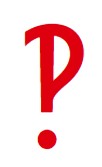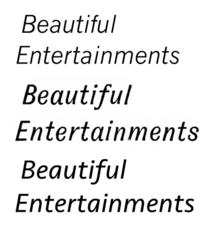Hwæt. We Gardena in geardagum,
þeodcyninga, þrym gefrunon,
hu ða æþelingas ellen fremedon.
Oft Scyld Scefing sceaþena þreatum,
monegum mægþum, meodosetla ofteah,
egsode eorlas. Syððan ærest wearð
feasceaft funden, he þæs frofre gebad,
 This is the part where you go, “Huh?”
This is the part where you go, “Huh?”
That is, in fact, English. Only it’s usually called “Anglo-Saxon.” If you hear it read out loud, you’ll hear something resembling Dutch. To those of you in the Netherlands or who speak Dutch, I said resembles it. Dutch didn’t even exist when this was written. Well, when it was spoken. The poem is actually a Danish epic, but you’ll find nary a word of Old Norse in it, never mind French, Latin, Celtic, or any of the dozens of languages English has ambushed in a back alley to steal words over the centuries.
So how is this English?
This is actually what linguists mean when they say Old English. Basically, as the Roman days in Britain waned, three Germanic tribes drifted in. The Saxons from Saxony (Duh.), the Angles from Angeln in modern-day Schleswig in Germany, and the Jutes, from Denmark’s Jutland peninsula. The Saxons settled in the south. The Angles took the Midlands and, after uniting their kingdoms, gave the country its name: Angleland, land of the Angles. Never mind England’s culture before the Vikings moved in permanently was largely Saxon. The Jutes went to Kent, which explains why that particular county still has its own unique culture and is yet quintessentially English. The Church of England is based there, and that’s where St. Patrick got his marching orders to go handle the snake problem in Ireland.* All these tribes spoke an early form of German, as did the Vikings to the north (who were not yet Vikings, but they were working on it.) They had to talk to each other and to their new neighbors, the Celts, and to the lingering Romans. Sprinkle in a few Latin constructions so the Romans and Celts could understand, and a new off-shoot of German emerged.
(And you could still split infinitives and end sentences in prepositions. Remember, the empire that made those rules just collapsed, so why keep up that nonsense? Take that, Mrs. Chaucer. You ruined tenth grade for me!)
Things continued swimmingly for a few centuries. The Angles coalesced around York, their main kingdom being Mercia. The Saxons’ center of power became Wessex (as in West Saxons.) The Jutes become Kent Men and spent their time in the lab trying to invent the Rolling Stones and Led Zeppelin. That would take a while, so they worked on the Anglican Church as a side project. I digress. The language remained more or less isolated. They also didn’t write a lot of things down. Hence, the Dark Ages. Not because civilization fell. Civilizations tend to give way to…Well…Civilizations. If there isn’t one in place already, people tend to build their own. Hence, Anglo-Saxon England, Old Norse Scandinavia. France. The Dark Ages are dark because such people don’t really have time to write things down. They’re busy building.
So, the next wave are the Vikings, whose idea of a vacation was pillaging and ravishing England, Scotland, and Northern France. Contrary to popular belief, they weren’t really looking for spam. Eventually, though, looting makes a lousy business model. So the Vikings barged into the Angle kingdoms and set up what was called the Danelaw. Around this time, a Saxon king named Alfred the Great–amazing leader, but lousy baker–united the Saxons, Kent, and the remaining Angle kingdoms into one nation, adopting the name for the region for his new country: England. He subjugated the invading Norse, and their language began changing Anglo-Saxon. It was still English, but the Norse, contrary to popular belief, got rid of a lot of the sillier rules of the language. Gendered nouns and verbs began disappearing. Unlike most other European languages, those dealing with the Norse decided “the” was all the definite article they needed. English started to look like, well, English.
And then we have the Welsh. The Welsh do not have a happy history with the Anglo-Saxon and Norse kings of old, but they had an impact on the evolving language. Celtic words began creeping into the language, as a bunch of Saxon nobles carved off a slice of Wales known as the Marches for themselves. Well, live among a people, you start sounding like them.
So by 1066, the language is already morphing into something resembling…um…English. Or, at least, modern English.
And then came Billy the Bastard. Er, um, William the Conqueror. No, really, one of his epithets was “the Bastard.” LIke the kings from the Danelaw before him, Willy was a Viking. A French Viking. In fact, the Normans didn’t speak Old Norse. They spoke their own special brew of French. And William decreed all England would speak French. And then Willy’s granddaughter Mathilda married an actual Frenchman, Geoffrey Plantagenet. And her son Henry II assumed the throne in England. And so proper French joined Norman French. But those pesky English insisted on speaking Anglo-Saxon. By the time Henry IV took the throne, he decided the Wars of the Roses would be fought in English. And this version of English, Middle English, was almost readable.
Whan that Aprille with his shoures soote,
The droghte of March hath perced to the roote,
And bathed every veyne in swich licóur
Of which vertú engendred is the flour;
Whan Zephirus eek with his swete breeth
Inspired hath in every holt and heeth
The tendre croppes, and the yonge sonne
Hath in the Ram his halfe cours y-ronne,
And smale foweles maken melodye,
That slepen al the nyght with open ye,
So priketh hem Natúre in hir corages,
Thanne longen folk to goon on pilgrimages,
And palmeres for to seken straunge strondes,
To ferne halwes, kowthe in sondry londes;
And specially, from every shires ende
Of Engelond, to Caunterbury they wende,
The hooly blisful martir for to seke,
That hem hath holpen whan that they were seeke.
If you read that out loud, you can understand what Chaucer is writing. But this is also where the various pronunciations of “oo” came into being. Between Chaucer and Shakespeare (who actually wrote in Modern English, just the Elizabethan version. Sorry, Rev, but your favorite Bible is not in Old English.), something happened called “vowel drift.” The vowels sounded different in Chaucer’s time, why the rhymes don’t work in the modern ear. Populations migrated. People flocked to England to find work. The language changed.
And then we have Mr. Gutenberg. Gutenberg did a great service to the world: He made books available and newspapers possible. Unfortunately, even though German has some non-Latin letters, he opted to use the strict 26-letter Roman alphabet we all know and love. His rationale was the Pope was Pope over all (Henry VIII enters the chat, followed by his son Edward VI and daughter Elizabeth. They’d like to dispute that.) and so Latin ruled. When Tyndale imported his first printing press, it did not have the thong, the now-obsolete letter denoting the “th” sound in English. There also was a holdover rune from Anglo-Saxon that covered some of the “-ough” words. But Gutenberg didn’t do runes. Umlats, yes. Probably a Spinal Tap fan (Google umlat and Spinal Tap.) But no runes. Them’s pagan letters. And so you have to put tough, thorough thought into how “ough” is pronounced. And here I’d been blaming the French and the Welsh all these years. Turns out it’s a technical glitch, and we get to suffer from it.
And now you know why English has swollen not into a large language but a linguist gang of seven or eight languages that waits in back alleys to mug other unsuspecting languages for words and idioms.
 Starting next week, I’m moving this column to Substack. I’ll have an address when that’s setup.
Starting next week, I’m moving this column to Substack. I’ll have an address when that’s setup. This is the part where you go, “Huh?”
This is the part where you go, “Huh?” Elmore Leonard once said of exclamation points, “You are allowed no more than three per 100,000 words.”
Elmore Leonard once said of exclamation points, “You are allowed no more than three per 100,000 words.”

 It’s no secret I have a love-hate relationship with my first novel. Published as James R. Winter (later shortened to “Jim Winter” because the former sounded pretentious),
It’s no secret I have a love-hate relationship with my first novel. Published as James R. Winter (later shortened to “Jim Winter” because the former sounded pretentious),